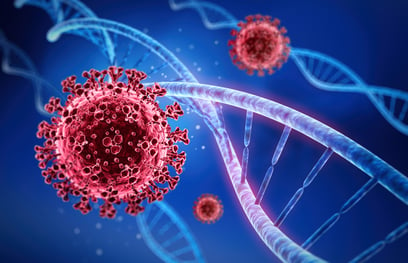What You Should Know about COVID-19 and Pregnancy
Join Our Movement
What started as an idea has become a national movement. With your support, we can influence policy and inspire lasting change.
Become an Advocate
COVID-19: During and Post Pregnancy
If you are pregnant, you may wonder if COVID-19 can affect your fetus. A few complications may be:
- Preterm birth
- Elevated risk for stillbirth
- Rare potential for COVID-19 to pass to the fetus
If you have COVID-19 while you are pregnant, there is an elevated risk that your baby will need to be admitted to a neonatal intensive care unit (NICU).
Protecting Yourself During Pregnancy
Despite the elevated risk of severe COVID-19 symptoms, you can take preventative steps while pregnant. One of the most effective ways to prevent or reduce the symptoms of COVID-19 is to get the COVID-19 vaccine and booster shots.
The National Institute of Allergy and Infectious Diseases (NIAID) published a study that discovered mothers who received an mRNA COVID-19 vaccine while pregnant shielded their infant from symptomatic COVID-19 infection up to six months after birth. Moreover, the U.S. Centers for Disease Control and Prevention (CDC) also observed that infants born to women with a COVID-19 vaccine or booster during pregnancy were less likely to be hospitalized because of COVID-19 symptoms. A study published in Nature Medicine’s March 2023 edition reported that newborns born to mothers vaccinated with a third booster shot were 50% less likely to be admitted to the hospital than those born to mothers who received the primary vaccine and were qualified to receive a third dose but did not get it.
Conclusion
Pregnancy increases the risk of severe COVID-19 symptoms. However, preventing or reducing the severe effects is possible. The mRNA COVID-19 vaccines and boosters are safe and effective in preventing or reducing COVID-19 symptoms. The vaccines and booster shots also help protect newborns from COVID-19 and its dangerous symptoms. If you think you have or were exposed to COVID-19, talk with your OB-GYN.
Christina Sisti, DPS, MPH, MS, is a bioethicist and health care policy advocate. She works to create awareness and improve healthcare policy for those with long-term health issues.
